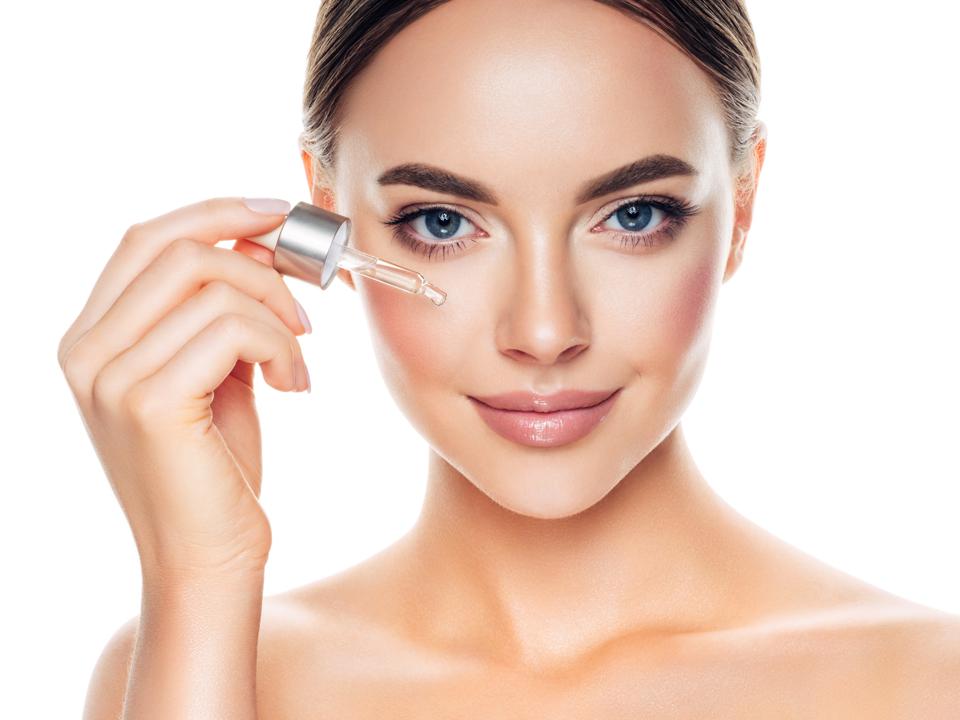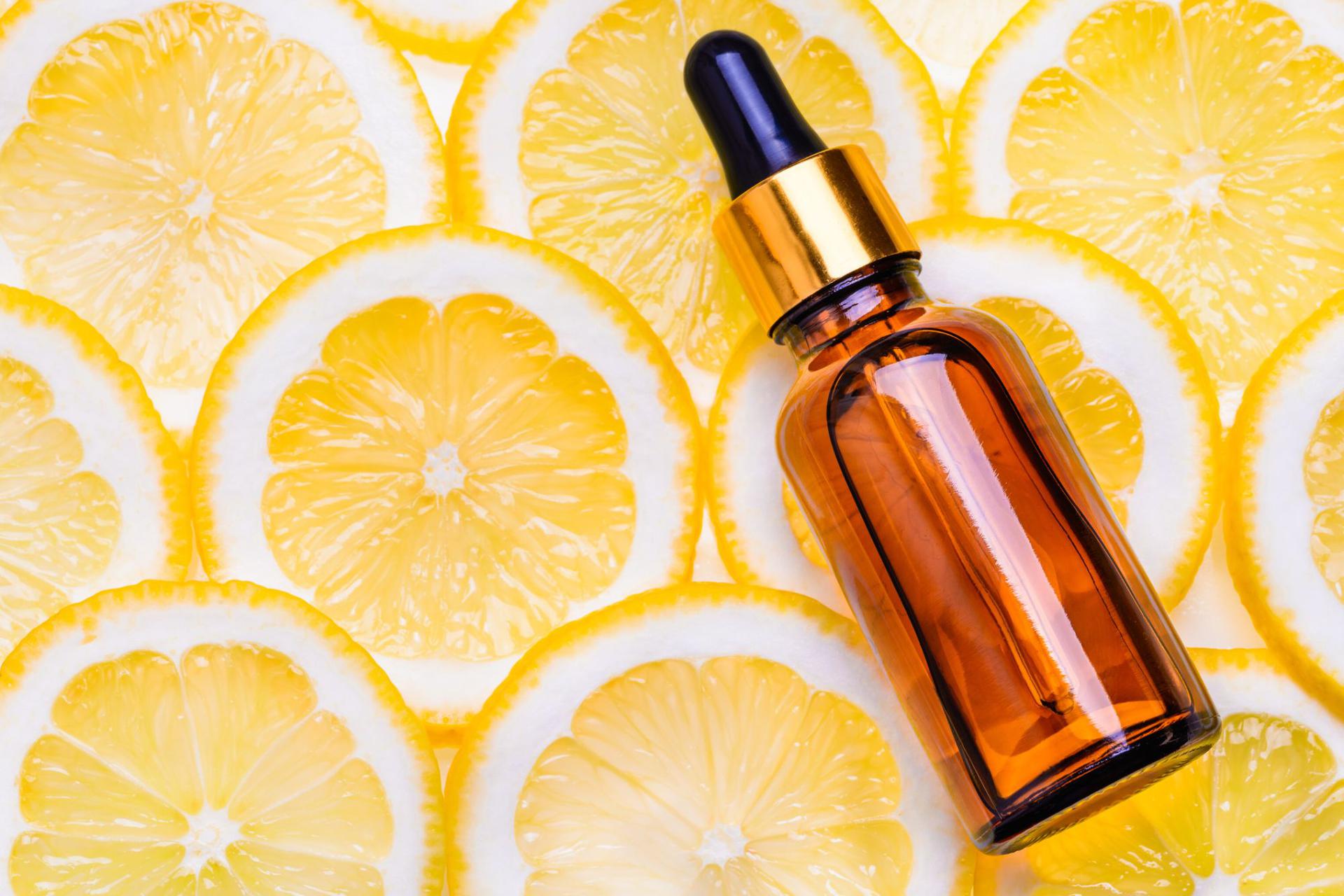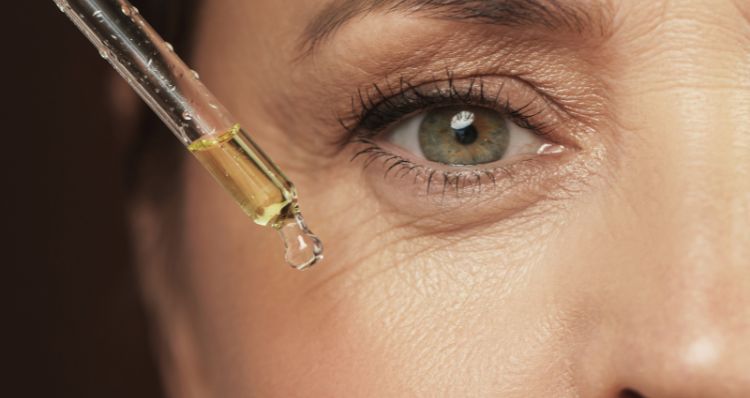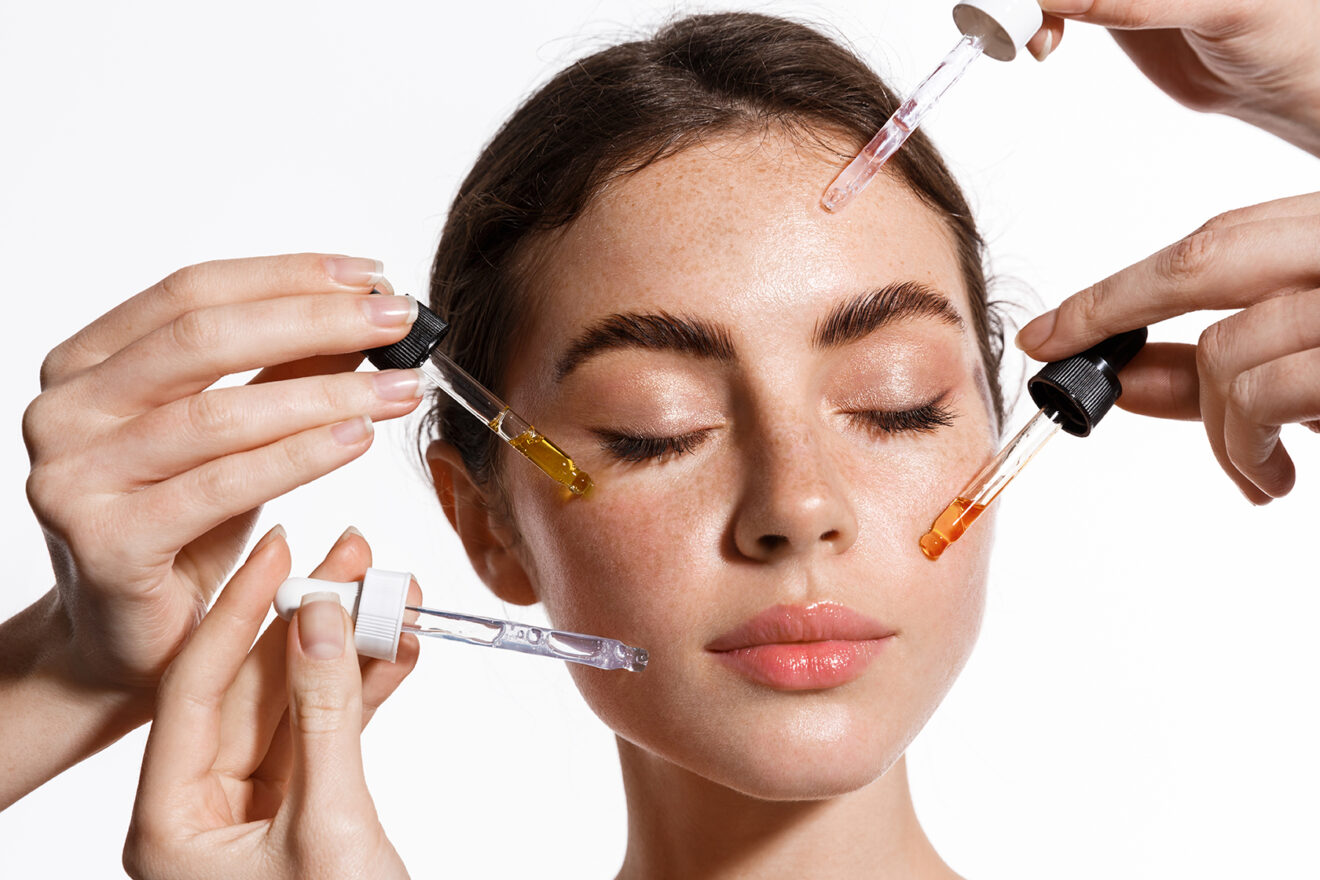HOW TO USE FACIAL SERUMS
A serum is a lightweight, fast-absorbing skincare product that contains a high concentration of active ingredients. It is made up of smaller molecules, which allows them to deliver the active ingredients more effectively, penetrating deeper into the skin.
This makes them particularly effective against specific skincare problems such as fine lines and wrinkles, dark spots, enlarged pores and uneven skin tone. Due to their high concentration of active ingredients, serums are typically the most effective and fastest-acting skincare product available, delivering fast and impressive results.

ADVANTAGES OF USING THE SERUM:
1. tightens the skin, preventing premature ageing and sagging.
2. the serum can be used to brighten the skin. Your skin tends to lose its radiance as you age. The serum will help to detoxify and rejuvenate tired skin.
3. reduces dark spots, pigmentation and discolouration in skin tone. As our skin is constantly exposed to UVA rays, which accelerate ageing, and UVB rays, which cause skin burns, we need to ensure that our skin is protected. By using a serum, you can reduce the appearance of these dark spots.
4. serums help reduce signs of fatigue. Not getting enough sleep can make your skin look dull and lifeless. Using a serum can help repair dull skin, leaving your skin bright and radiant.
5 It can hydrate the skin with its moisturising properties. It retains moisture in the pores and provides healthier looking skin.
6. using the right serum can help acne-prone skin. It can help absorb oil, mattify the skin and treat acne blemishes. Serums for acne-prone skin are generally rich in salicylic or glycolic acid, used to treat pimples.

WHAT DOES A SERUM LOOK LIKE?
True water-based serums are almost weightless, so they don't leave a residue like an oil or moisturiser would. Many serums are so light that it feels like you are applying water. There are also slightly heavier serums with a gel-like consistency.
WHAT IS THE DIFFERENCE BETWEEN A SERUM AND A MOISTURISER?
While serums may contain moisturising ingredients, they are not a replacement for a traditional moisturiser. While serums absorb deep into the layers of the skin, lotions and creams aim to create a barrier on the skin's surface to retain moisture and protect the skin from external irritants and pollutants.
DO I NEED BOTH A MOISTURISER AND A SERUM?
Whether you will need both a serum and a moisturiser depends on your skin type. For normal to oily skin, a serum will suffice. If you have dry skin, you will probably want to use a serum under your moisturiser.

HOW TO USE THE SERUM?
Serums should be applied after cleansing and toning, and before applying moisturiser. Here's a tip to make serums even more effective. Moisturised skin is more permeable than dry skin, so apply serums immediately after using a toner and you will get even better results. When applying serums, remember that a little bit makes a big difference. More doesn't mean better because serums are very concentrated, so if you use too much, you'll just waste the product. If you're applying several serums, start with the one that has the thinnest consistency and move on to the thickest.
ARE SERUMS MORE EXPENSIVE?
Serums tend to be more expensive per ounce than other skincare products, but this is due to the higher concentration of active ingredients. Remember that a little goes a long way, so a one ounce bottle can last for months, depending on how many times you use it daily. As the serum is powerful and delivers fast and effective results, it is well worth it.
HOW TO STORE THE SERUM?
Serums should be stored in a cool, dry place and should usually be used within six to 12 months of opening

TYPES OF FACIAL SERUM:
1. anti-ageing serums- beneficial for all skin types, not just mature skin. You can use them as early as your 20s. They can help slow down the ageing process and can fight fine lines and wrinkles with the right ingredients.
2. antioxidant serum- can be used by all skin types and generally contains ingredients such as vitamin A, C and E, resveratrol, niacinamide, melatonin and L-ascorbic acid. It helps protect the skin from impurities and unstable particles that can damage skin cells on a daily basis.
3. moisturising serum- is essential for those with dry skin to hydrate the layers within. It can also be used by those with oily or acne-prone skin. Oily skin often needs deep moisturisation to regulate the production of natural oils called sebum. Ingredients to look for must include hyaluronic acid and peptides.
4. Brightening, anti-pigmentation and colour correcting serums- to even out skin tone, use serums rich in phytic acid, vitamin C, arbutin, kojic acid, azelaic acid, L-ascorbic acid and glycolic acid. They will naturally reduce hyperpigmentation, lighten dark spots and reduce discolouration


